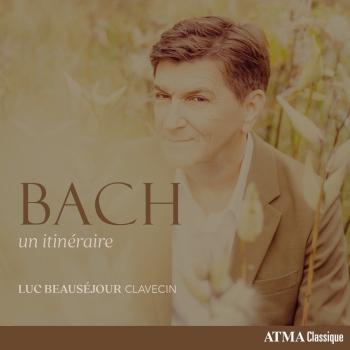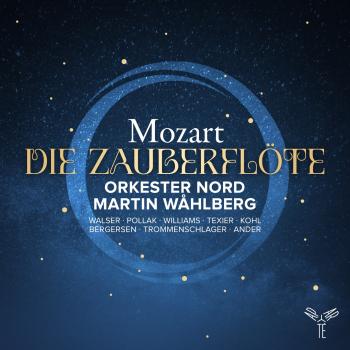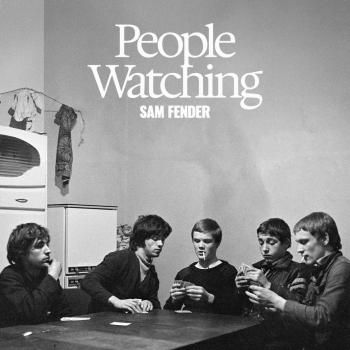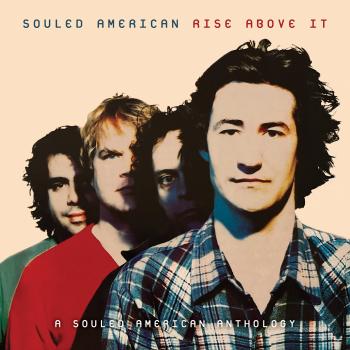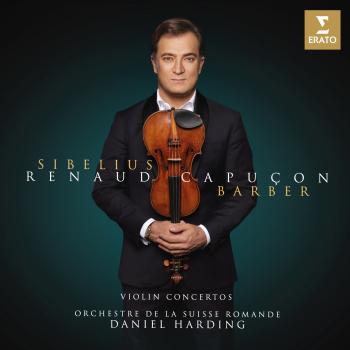
Robert Schumann: Fantasies Burkard Schliessmann
Album info
Album-Release:
2024
HRA-Release:
18.03.2024
Label: Divine Art
Genre: Classical
Subgenre: Instrumental
Artist: Burkard Schliessmann
Composer: Robert Schumann (1810-1856)
Album including Album cover Booklet (PDF)
- Robert Schumann (1810 - 1856): Kreisleriana, Op. 16:
- 1 Schumann: Kreisleriana, Op. 16: I. Äußerst bewegt 03:03
- 2 Schumann: Kreisleriana, Op. 16: II. Sehr innig und nicht zu rasch – Intermezzo I (Sehr lebhaft) 09:48
- 3 Schumann: Kreisleriana, Op. 16: III. Sehr aufgeregt – Etwas langsamer – Erstes Tempo – Noch schneller 05:04
- 4 Schumann: Kreisleriana, Op. 16: IV. Sehr langsam – Bewegter – Erstes Tempo – Adagio 03:49
- 5 Schumann: Kreisleriana, Op. 16: V. Sehr lebhaft 03:22
- 6 Schumann: Kreisleriana, Op. 16: VI. Sehr langsam – Etwas bewegter – Erstes Tempo 04:47
- 7 Schumann: Kreisleriana, Op. 16: VII. Sehr rasch – Noch schneller – Etwas langsamer 02:11
- 8 Schumann: Kreisleriana, Op. 16: VIII. Schnell und spielend 03:45
- Fantasie in C Major, Op. 17:
- 9 Schumann: Fantasie in C Major, Op. 17: I. Durchaus fantastisch und leidenschaftlich vorzutragen 12:50
- 10 Schumann: Fantasie in C Major, Op. 17: II. Mäßig. Durchaus energisch 08:11
- 11 Schumann: Fantasie in C Major, Op. 17: III. Langsam getragen. Durchweg leise zu halten 09:03
- Arabeske, Op. 18:
- 12 Schumann: Arabeske, Op. 18: Leicht und zart – Minore I (Etwas langsamer) – Tempo I – Minore II (Etwas langsamer) 07:14
- Fantasiestücke, Op. 12 Heft I | Book I | Livre I:
- 13 Schumann: Fantasiestücke, Op. 12 Heft I | Book I | Livre I: I. Des Abends (Sehr innig zu spielen) (Version with Keyboard I) 03:59
- 14 Schumann: Fantasiestücke, Op. 12 Heft I | Book I | Livre I: II. Aufschwung (Sehr rasch) 03:22
- 15 Schumann: Fantasiestücke, Op. 12 Heft I | Book I | Livre I: III. Warum ? (Langsam und zart) 02:53
- 16 Schumann: Fantasiestücke, Op. 12 Heft I | Book I | Livre I: IV. Grillen (Mit Humor) 03:38
- Fantasiestücke, Op. 12 Heft II | Book II | Livre II:
- 17 Schumann: Fantasiestücke, Op. 12 Heft II | Book II | Livre II: V. In der Nacht (Mit Leidenschaft – Etwas langsamer – Tempo I) 04:24
- 18 Schumann: Fantasiestücke, Op. 12 Heft II | Book II | Livre II: VI. Fabel (Langsam – Schnell – Langsam – Schnell – Tempo I – Langsam) 03:04
- 19 Schumann: Fantasiestücke, Op. 12 Heft II | Book II | Livre II: VII. Traumes Wirren (Äußerst lebhaft) 02:58
- 20 Schumann: Fantasiestücke, Op. 12 Heft II | Book II | Livre II: VIII. Ende vom Lied (Mit gutem Humor – Etwas lebhafter 05:36
- Arabeske, Op. 18:
- 21 Schumann: Arabeske, Op. 18: Leicht und zart – Minore I (Etwas langsamer) – Tempo I – Minore II (Etwas langsamer) 07:01
- Fantasiestücke, Op. 12 Heft I:
- 22 Schumann: Fantasiestücke, Op. 12 Heft I: I. Des Abends (Sehr innig zu spielen) (Version with Keyboard II) 03:47
- Nachtstücke, Op. 23:
- 23 Schumann: Nachtstücke, Op. 23: I. Mehr langsam, oft zurückhaltend 04:17
- 24 Schumann: Nachtstücke, Op. 23: II. Markiert und lebhaft 04:27
- 25 Schumann: Nachtstücke, Op. 23: III. Mit großer Lebhaftigkeit 03:38
- 26 Schumann: Nachtstücke, Op. 23: IV. Ad libitum – Einfach 03:32
- Drei Fantasiestücke, Op. 111:
- 27 Schumann: Drei Fantasiestücke, Op. 111: I. Sehr rasch, mit leidenschaftlichem Vortrag 02:18
- 28 Schumann: Drei Fantasiestücke, Op. 111: II. Ziemlich langsam – Etwas bewegter – Erstes Tempo 05:08
- 29 Schumann: Drei Fantasiestücke, Op. 111: III. Kräftig und sehr markiert 03:17
- Gesänge der Frühe, Op. 133:
- 30 Schumann: Gesänge der Frühe, Op. 133: I. Im ruhigen Tempo 02:40
- 31 Schumann: Gesänge der Frühe, Op. 133: II. Belebt, nicht zu rasch 02:11
- 32 Schumann: Gesänge der Frühe, Op. 133: III. Lebhaft 02:22
- 33 Schumann: Gesänge der Frühe, Op. 133: IV. Bewegt 02:26
- 34 Schumann: Gesänge der Frühe, Op. 133: V. Im Anfang ruhiges, im Verlauf bewegteres Tempo 03:08
Info for Robert Schumann: Fantasies
Divine Art ist stolz darauf, Burkard Schliessmanns unverwechselbare Interpretation der inneren Welt Robert Schumanns durch das bahnbrechende Aufnahmeprojekt "Fantasien" vorzustellen. In den Berliner Teldex Studios hat sich Schliessmann in Schumanns Werk vertieft und versucht, die inneren Qualitäten der Musik freizulegen, indem er expressive und explosive Grenzen auslotete. In Zusammenarbeit mit dem Produzenten Julian Schwenkner und dem Tontechniker Jupp Wegner setzte er 14 Mikrofone für ein Dolby-Atmos-Erlebnis ein und hielt die Feinheiten von Schumanns Kompositionen auf drei SACDs fest, darunter eine alternative Interpretation der Fantasiestücke op. 12.
Bei der Wiederaufnahme der Fantasie in C op. 17 betont Schliessmann die strukturelle Komplexität, zieht Parallelen zu Wagners Tristan und präsentiert im zweiten Satz rhythmische und technische Extreme. Die Einspielung der "Fantasien" entfaltet im dritten Satz ein langsameres Tempo und bietet ein echtes Hörerlebnis mit gesteigerter Poesie und explosiver Elektrizität. Burkard Schliessmann navigiert in "Fantasien" durch Schumanns komplizierte musikalische Welt und diese Veröffentlichung ist ein Meilenstein unter den klassischen Klavieraufnahmen und ergänzt sein vorheriges Album "Live & Encores". Fantasien" ist ein Muss für jeden Sammler exzellenter Klavieraufnahmen und setzt Schliessmanns Vermächtnis fort, außergewöhnliche Interpretationen zu liefern, die bei anspruchsvollen Klassikliebhabern Anklang finden.
Burkard Schliessmann, Klavier
Burkard Schliessmann
It is tempting to see Burkard Schliessmann's hobby of scuba diving as more than just a way of relaxing. After all, his passion for discovering hidden treasures, exploring the depths in search of dazzling colours, shapes and formations, is not dissimilar to what motivates him when he sits at one of his two Steinways in a concert hall or recording studio and immerses himself in the 19th century world of Chopin or Schumann.
In his performances, Schliessmann seeks out fantastical forms and colours and converts these into sound, astounding us with the poetic impact of works whose every nook and cranny we believed had long since been fully explored. And yet Schliessmann is not one of those performers who merely dazzle with their brilliant technique but can get into deep water when the going gets tough. Remaining true to his mission, he never allows his musical narrations to deviate from the course he has set for them. Such consistency is only one facet of this artist. The other is what Schliessmann himself describes as 'intuition': "For me, this term means embracing everything at the highest level - including both the emotional and the intellectual. It is a kind of instinct that ensures you do the 'right thing': The 'right thing' in music? Schliessmann's desire to penetrate to the truth of a musical composition is not just an aspiration - in his performances it becomes a reality. A combination of architect and sensuous musician right down to his fingertips, he presents us with subtly changing perspec-tives on every detail of the music, imbuing it with inner tension and epic energy. It is this balance of intellectuality and emotionality, detachment and subjective directness that enables Schliessmann "to adhere to the truth in reproducing the music, but also in incorporating my own aura." Schliessmann readily admits that in doing this he is following in the steps of past masters like Alfred Cortot and Artur Schnabel: "Their approach to playing gave listeners the impression that the music was being created on the spot - and yet it was all planned down to the last detail." Schliessmann's affinity with an older piano playing tradition was reinforced by his teachers - musicians like Poldi Mildner and Shura Cherkassky, with whom he studied between 1987 and 1989 in Washington and Paris. Mildner had been a student of Rachmaninov, Schnabel and Liszt's pupil Moritz Rosenthal, while Cherkassky was taught by Leopold Godowsky's son-in-law David Saperton.
These contacts with a past era of piano playing have left their mark on Schliessmann - and not just on his repertoire, which ranges from Schumann's Symphonic Studies and Liszt's B-minor sonata to Godowsky's Symphonic Metamorphoses on Strauss. Schliessmann also feels most at home with the strong bass tones of concert instruments built around 1920-30. As though it was the most natural thing in the world he accesses the 19th century via Romantic literature, examining in depth the fine arts and philosophy of the period and exploring further those aspects he sees as interacting with the music. As he says of the Liszt sonata: "Many interpreters make a problem out of it, but I myself don't need to think too hard about my interpretation, as the 'background' to the work is already in my blood apriori." He adopts an equally light touch in his approach to Chopin. Just as he rediscovered the long-neglected influence of Brahms' late piano works on Schoenberg, so, too, Schliessmann has rehabilitated the distant imprint of Johann Sebastian Bach on Chopin, eloquently combining structure and poetry in his performances of the latter's works. Even though "Chopin is for me the crowning glory of piano-playing", he is determined to turn to Bach and his 'Art of the Fugue' in the near future - in a version for organ rather than for piano. He is, after all, also a trained organist, and as a member of the revered Comité d'honneur de l'Association des Grandes Orgues de Chartres (Paris-Chartres) is responsible for awarding the Joh. Seb. Bach special prize for the best interpretation of a major organ work by the composer. Whether in the depths of the ocean or the lofty heights of the organ gallery, Burkard Schliessmann is a phenomenon to be reckoned with.(Guido Fischer)
Booklet for Robert Schumann: Fantasies

